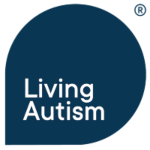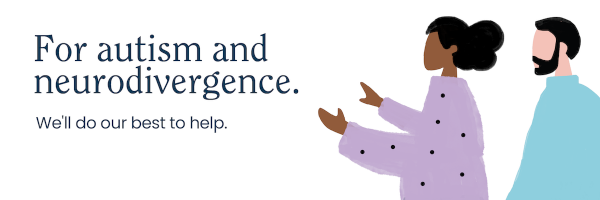By Manar, Living Autism
|
Over the past few years, legislation has been passed and guidance has been published to assist people with an autistic spectrum condition get the diagnosis and support they need. However, many people are still unaware of their rights and they do not know when they are given misinformation. This article gives some basic information for both children and adults with autism. For the purposes of this article the word ‘autism’ will encompass autistic spectrum disorders, autistic spectrum conditions, Asperger’s Syndrome and PDD-NOS. Diagnosis for children and young peopleIn September 2011 NICE (National Institute for Health and Clinical Excellence) published guidelines for a diagnostic pathway for children and young people suspected of having autism. These guidelines stipulate that:
If you are having difficulties in getting a diagnosis through your GP, consider contacting your Local Authority to find out who is in charge of referrals to the local autism team and contact them directly. Diagnostic assessments for children and young people
Diagnosis for adultsThe Autism Act, 2009, and subsequent Autism Strategy: Fulfilling and Rewarding Lives, 2010, indicate that clear and consistent pathways to diagnosis have to be developed in each area. In June 2012, NICE published guidelines entitled Autism: recognition, referral, diagnosis and management of adults on the autism spectrum. These guidelines stipulate that an assessment of possible autism should be carried out if the person has “one or more of the following" –
One or more of the following:
If two or more of the above difficulties are being experience then a comprehensive assessment should be offered. A comprehensive assessment of autism would include diagnostic, risk and needs assessments. If you are experiencing two or more of these difficulties and you are not offered a comprehensive assessment of autism, ask your GP or a health professional for one. Post diagnosis for childrenOnce a child has received a diagnosis, the NICE guidelines state that information should be provided to prepare for the future and contact details should be given for local and national support organisations. If you are not given any contact details ask the autism team. At school, if your child’s difficulties make it harder for them to learn or access education, it is important to get help straight away. The school should use the Special Educational needs Code of Practice to assess your child’s needs and to guide the school in how best to meet your child’s needs. If your child’s teacher or their SEND (Special Educational Needs or Disabilities) co-ordinator feels that your child needs support from outside the school, such as speech and language therapy, they will get help through SEN support. If you are not told about this, please ask. Sometimes, schools cannot fully meet the needs of your child. In that case, you can apply to your local authority for a EHC Plan (Education, Health and Care Plan). This assessment will help to identify in detail your child’s needs. The local authority has a legal obligation to respond to your request within 6 weeks. Once the assessment has been carried out, a EHCP (Education, Health and Care Plan) will be written. The plan should be produced within 20 weeks of the request for assessment. This plan will help you to access extra support. Sometimes however, the local authority decides not to write a plan. In this case they should always explain why and they should let you know within 16 weeks of the date they received the request for an assessment . You have a right to appeal to the Special Educational Needs and Disability Tribunal. If you decide to appeal it is important to do this within the time limit you are given by the local authority. Post diagnosis for adultsThe Autism Strategy (2010), Fulfilling and rewarding lives, states that “diagnosis alone is not enough: the fundamental change we want to see is that diagnosis leads to a person-centred assessment of need, in line with the NHS and Community Care Act 1990”. The aims of the Autism Strategy (2010) have been reinforced and more detailed guidance provided in the Autism Strategy Update (2014), Think Autism. Furthermore, under Section 47(1) of the NHS and Community Care Act 1990, if a person may be in need of community care services, the local authority has a duty to assess that person. An individual can request this assessment. Therefore, if you believe you are in need of services you can ask for an assessment from your local authority. An assessment of someone with autism should be carried out by a trained practitioner and take into account their communication needs. It is important to note that an assessment cannot be denied on the basis of a person’s IQ. Furthermore, the Strategy states that a “diagnosis of autism should be recognised as a reason for assessment” (3.14) and also “where someone has previously had a needs assessment, and is then diagnosed as having autism, this should be recognised as a potential reason for reassessment” (3.18). This means that if you receive a diagnosis of autism you can request a community needs assessment from a trained practitioner who has a good knowledge of autism. A community assessment of needs is required to access funding for support and services. However, a diagnosis of autism is not a guarantee of support or services. This is determined by the community needs assessment. Equally, an adult does not have to have a diagnosis to ask for an assessment of needs. Under the 1990 Act they can request an assessment if they perceive they have a need. If you are an adult with continuing health needs within the NHS, from April 2014 you can ask for a personal health budget, including a direct payment. From October 2014, if you are receiving NHS Continuing Healthcare you ‘have the right’ to have a personal health budget and you should ask your GP about this. Transitioning from childhood to adulthoodChildren who have a SEND (Special educational need or disability) have to have transition planning by the local authority from Year 9 at age 13 or 14. Local authorities have a duty to carry out a section 139A assessment for all children with a SEND going on to further education or training in order to form transition plans. Transition plans have to be tailored to the needs and wishes of each individual and should be reviewed and updated each year. A child with autism in transition should be offered a community care assessment. If this assessment is not offered, then ask your local authority’s autism team. If your child is going to college, the college has an obligation to make ‘reasonable’ adjustments for their special individual needs. If the ‘reasonable’ adjustments are not sufficient, there are special colleges which cater specifically for the needs of people with disabilities or learning difficulties. Funding for these colleges, which are often independent, can be accessed through the Education Funding Agency. ConclusionMost local authorities now have in place an autism team for adults and for children. If you are concerned that either a child or an adult has autism and you would like a diagnosis, first ask your GP. If your GP is unable to help, contact the autism team for your locality direct. Every local autism team should have access to a diagnostic team. If you feel a child needs support in school, ask the school for an assessment for a Statement of Educational Needs. You do not have to have a diagnosis of autism to request one. If you feel an adult is in need of community support and services, ask your local authority for a community assessment of needs. If an adult is in need of continuing NHS care, ask your GP about personal health budgets. You do not have to have a diagnosis of autism to request either the community assessment of needs or the personal health budget. If you would like further guidance, you can also contact the Living Autism team on 0800 756 2420 orinfo@livingautism.co.uk Legislation and GuidanceAutism Strategy: Fulfilling and Rewarding Lives, 2010 NHS and Community Care Act, 1990 |

